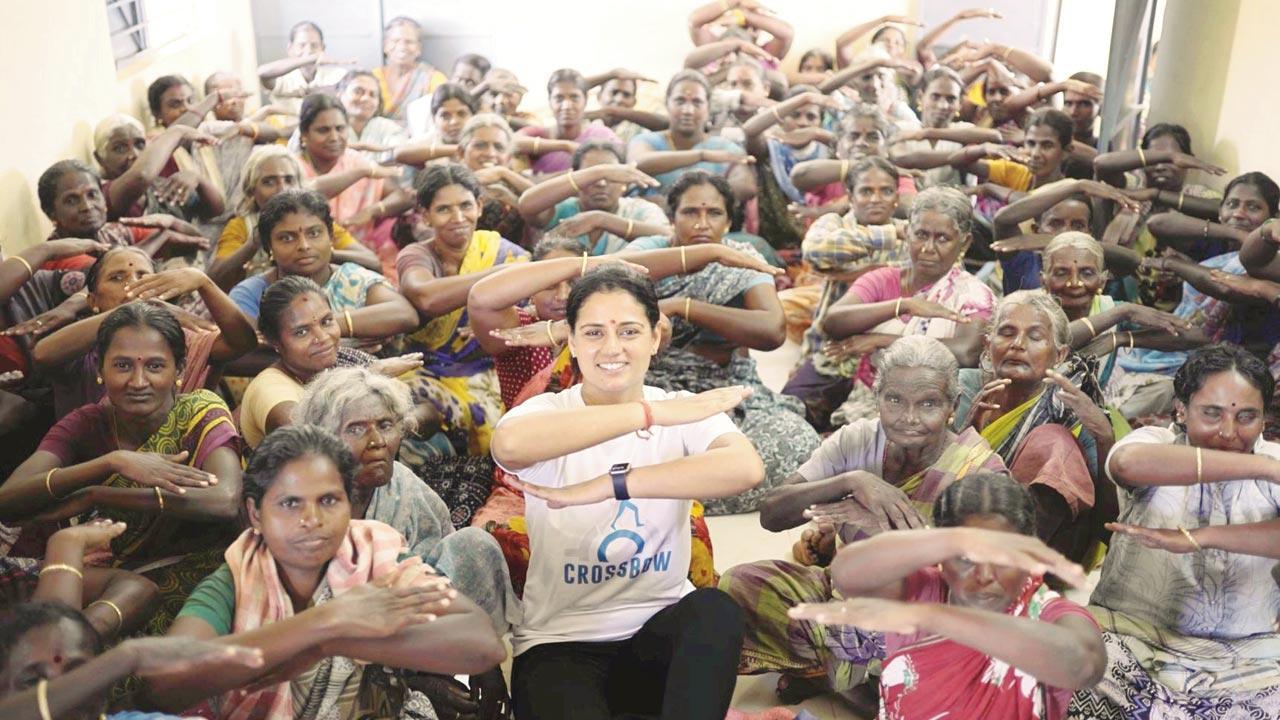Why did a woman quit a fancy job in Hong Kong to traverse 11 Indian states alone over 230 days? The answer lies in a docu that’s sure to be the balm for every survivor of physical, sexual assault

Srishti Bakshi, founder of CrossBow Miles, was named an Empower Women Champion for Change 2016-2017
It is the violence of the minority, and the silence of the majority, that perpetuates violence, writes Srishti Bakshi in the beginning of her documentary, WOMB (Women of My Billion).
ADVERTISEMENT
In December 2017, Bakshi walked into the home of a 14-year-old girl, who had been gang-raped and set on fire. “I missed her by two weeks, she had already succumbed to the injuries,” recalls the filmmaker over a call from London. The incident took place at Deval village, some 100 km from the Sagar district in Madhya Pradesh. The accused entered her home when she was asleep. As she cried for help, they poured kerosene and burnt her alive. “That day was the hardest of my journey. If felt like violence had won. Why was I walking across the country? It seemed pointless.”
While this display of brutality stayed with Bakshi, it was an incident from one year ago that changed the course of her life.
A 35-year-old woman and her teenage daughter were on their way to a family function at Shahjahanpur in Uttar Pradesh when their vehicle was stopped on national highway 91 near Bulandshah. The two were robbed and raped. “I was overcome by this feeling that I had to go something,” she says. While the 2013 Delhi gang-rape and murder had moved Bakshi enough to join her friends in protest, she says she was an “armchair activist” who took to social media to raise her voice against violence against women.
News reports of the Highway 91 gang-rape moved her enough to quit her job in Hong Kong and return to India. It was the beginning of a long journey, one that would take her across 3,800 km spanning 230 days. Her mission was clear—to cover the entire stretch from Kanyakumari to Kashmir on foot and alone with the purpose of creating awareness about the security and social status of women in India.
Bakshi started her sojourn on September 10, 2017. Of the 300 women she met on the road, three of the most powerful stories she encountered among them have made it to WOMB. Retelling the encounters of survivors Pragya Prasun Singh, Lt. Col. Sangeeta Tiwari and Neha Rai, WOMB recently premiered at the opening night UK Gala of the London Indian Film Festival 2021.
Singh is an acid attack survivor from Jharkhand, Rai is a survivor of assault and mistreatment after marriage from both her husband and family and Tiwari, who has had two failed marriages, made a career for herself as a doctor in the Army. “Their violence is the summation of most women I met on the journey. And so, it made sense to highlight these stories the most.”
There were moments in the seven months she was on the road when she wanted to give up. But someone would prove to be sudden inspiration to carry on. “When I met the family of a minor girl in Deval, I was hardly motivated to continue my walk the next day. Some workers from ASHA (community health workers body) were to join me for 5 km of the 15 km walk. There was a woman next to me, whose face was black and blue. But I didn’t have the courage to ask her what happened to her. As the walk ended, she said, ‘After meeting you, I want to put a stop to all this. I will never let my husband touch me again’. And just like that, I found the determination to finish my journey,” Bakshi shares.
WOMB is a poignant watch, exploring the social and political issues faced by today’s Indian woman as the filmmaker interacts with close to 85,000 women over more than 100 workshops she conducts in schools, villages and institutions along the way. The film is a unique testament to seemingly insurmountable challenges that everyday sheroes are overcoming.
 Subscribe today by clicking the link and stay updated with the latest news!" Click here!
Subscribe today by clicking the link and stay updated with the latest news!" Click here!







